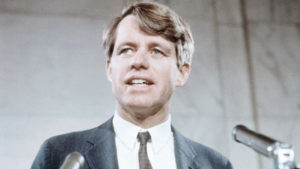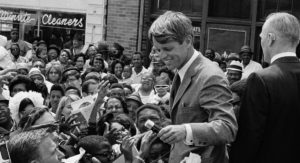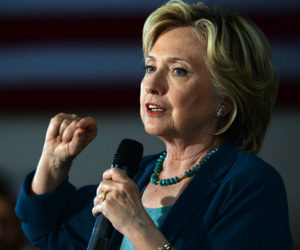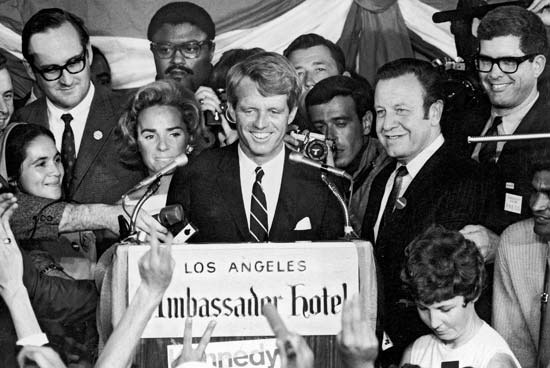Robert F. Kennedy would have turned 93 today.
The late U.S. attorney general and U.S. senator from New York died 50 years ago at the hands of an assassin who shot him in a Los Angeles hotel kitchen after Bobby Kennedy had just won the California Democratic Party presidential primary.
He was 42 years of age when he died.
I have grieved ever since over that loss.
RFK was my first political hero, although I don’t like using the h-word when talking about politicians. They aren’t heroic figures any more than athletes are heroes.
I did admire him greatly.
But to think on this day that a young, ambitious politician died at an age that is younger than the younger of my two sons fills me with an odd sense of my own mortality.
We need a politician like RFK among us today. We are a nation divided by race, by social status, by partisan politics. Bobby Kennedy sought to elevate us above the divisions that ravaged the nation when he sought the presidency in 1968, that most turbulent of years.
It was Bobby who climbed aboard that flatbed truck in Indianapolis on April 4, 1968 and informed the crowd of mostly black supporters that “Martin Luther King was shot and killed.” The crowd gasped in horror. RFK then went on to call for “love” and “compassion for one another.”
As other major U.S. cities erupted in violence that night, Indianapolis remained calm.
I don’t know whether Robert Francis Kennedy would have attained the highest office in America had death not taken him that night. My heart tells me there was a path to the Democratic nomination and to election. But … that must remain for others’ speculation.
The nation lost a champion for humanity five decades ago.
Today, though, I want to salute the fellow who entered this world 93 years ago today and embarked on a too-brief journey in a quest to heal the wounds that harmed us.
Happy birthday, Bobby. Many millions of us still miss you.



